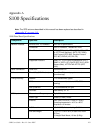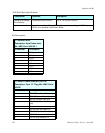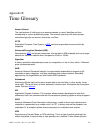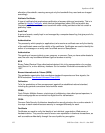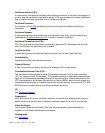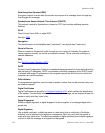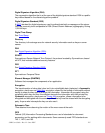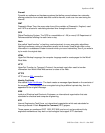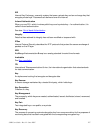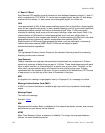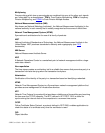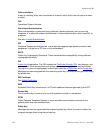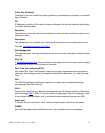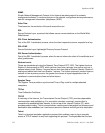
S100 User Guide – Rev. D – June 2005 125
2
5
3
Digital Signature Algorithm (DSA)
The asymmetric algorithm that is at the core of the digital signature standard. DSA is a public-
key method based on the discrete logarithm problem.
Digital Signature Standard (DSS)
A NIST
standard for digital signatures, used to authenticate both a message and the signer.
DSS has a security level comparable to RSA (Rivest-Shamir-Adleman) cryptography, having
1,024-bit keys.
Digital Time-Stamp
See Time-Stamp
Directory
The directory is the storage area for network security information such as keys or server
names.
DSA
See Digital Signature Algorithm (DSA)
.
SS/NTP
Symmetricom Secure Network Time Protocol, the protocol created by Symmetricom, based
on NTP, that includes additional security features.
DSS
See Digital Signature Standard (DSS)
DTT
Symmetricom Temporal Token
Element Manager (ENMTMS)
Software that manages the components of an application.
Encryption
The transformation of clear data (clear text) into unintelligible data (ciphertext). Asymmetric
encryption, also known as Public Key
encryption, allows for the trading of information without
having to share the key used to encrypt the information. Information is encrypted using the
recipient’s public key and then the recipient decrypts the information with their private key.
Symmetric encryption, also known as Private Key
encryption, allows information to be
encrypted and decrypted with the same key. Thus the key must be shared with the decrypting
party. Anyone who intercepts the key can also use it.
Ephemeris Time
Time obtained from observing the motion of the moon around the earth.
FIPS
Federal (US) Information Processing Standards are a set of standards for document
processing and for working within documents. Some commonly-used FIPS standards are
140-1, 140-2, and 180.





